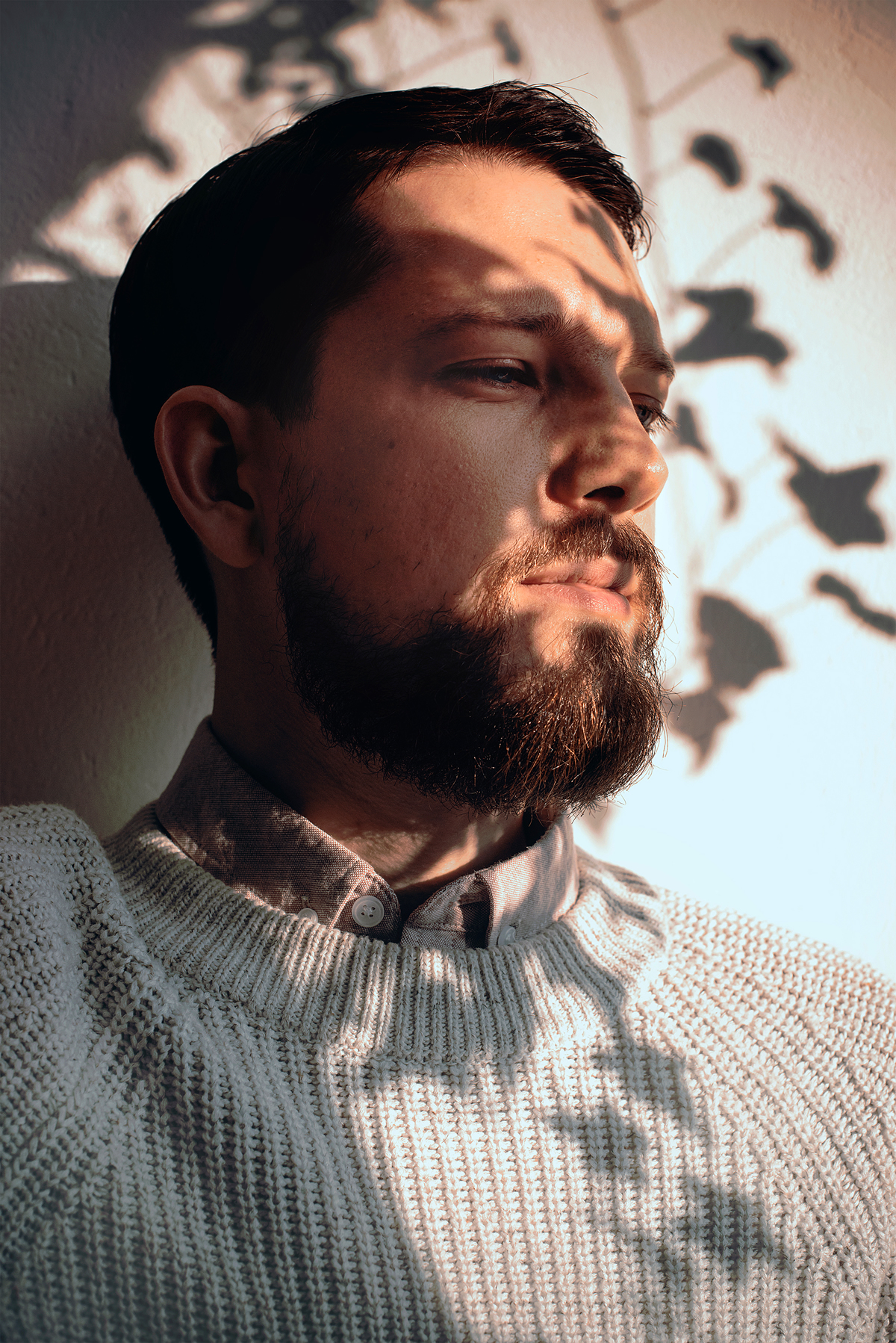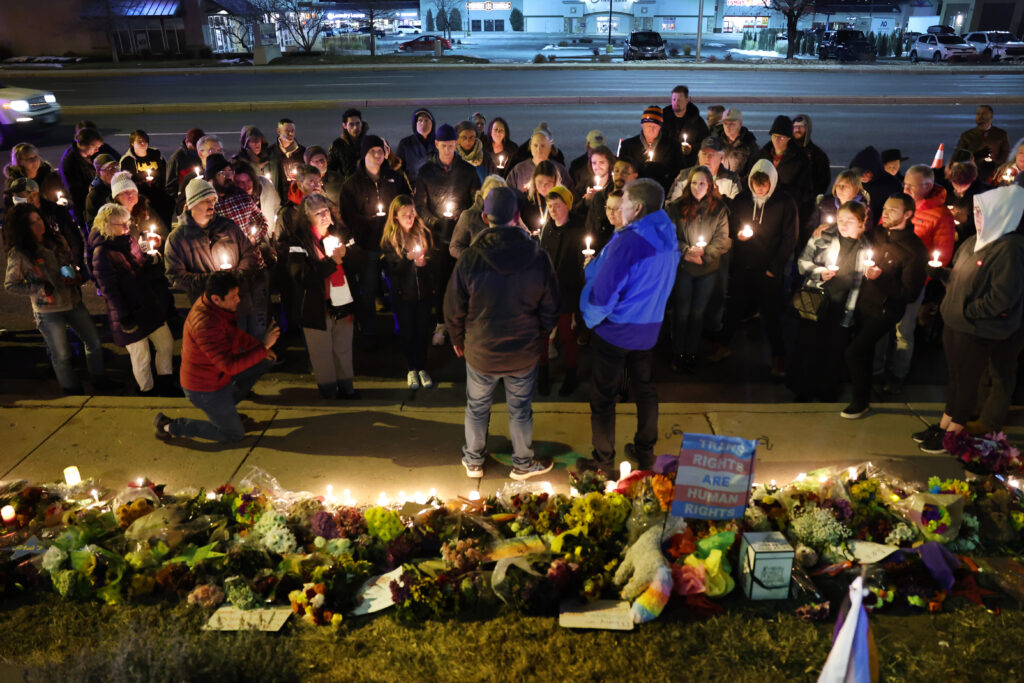A gay filmmaker from Lithuania who describes himself as the “Baltic enfant terrible” uses his work to promote LGBTQ and intersex rights.
Romas Zabarauskas, 32, grew up in Vilnius, the Lithuanian capital.
He told the Washington Blade during an interview in D.C. in August that he initially wanted to be an actor, but soon realized he wanted to direct films.
Zabarauskas said the classic films — including John Waters’ “Pink Flamingos” and Douglas Sirk’s “All that Heaven Allows” —he watched in a local library exposed him to “the diversity of the world.” He also said Todd Haynes, Derek Jarman, Gregg Araki and other LGBTQ and intersex filmmakers “inspired” him.
“I enjoyed the diversity of the world,” he said. “It wasn’t just in terms of sexuality and gender identity, but also in terms of diversity of styles and ways of expression. It was amazing because it made me feel accepted.”
“It all sounds kind of trivial, but it’s true,” added Zabarauskas. “Cinema captures stories from all across the world in such different ways. That’s kind of amazing. I was definitely inspired by that.”
Zabarauskas studied at Paris 8 Vincennes Saint-Denis University from 2009-2011 and at City College of New York: Hunter College from 2011-2012.
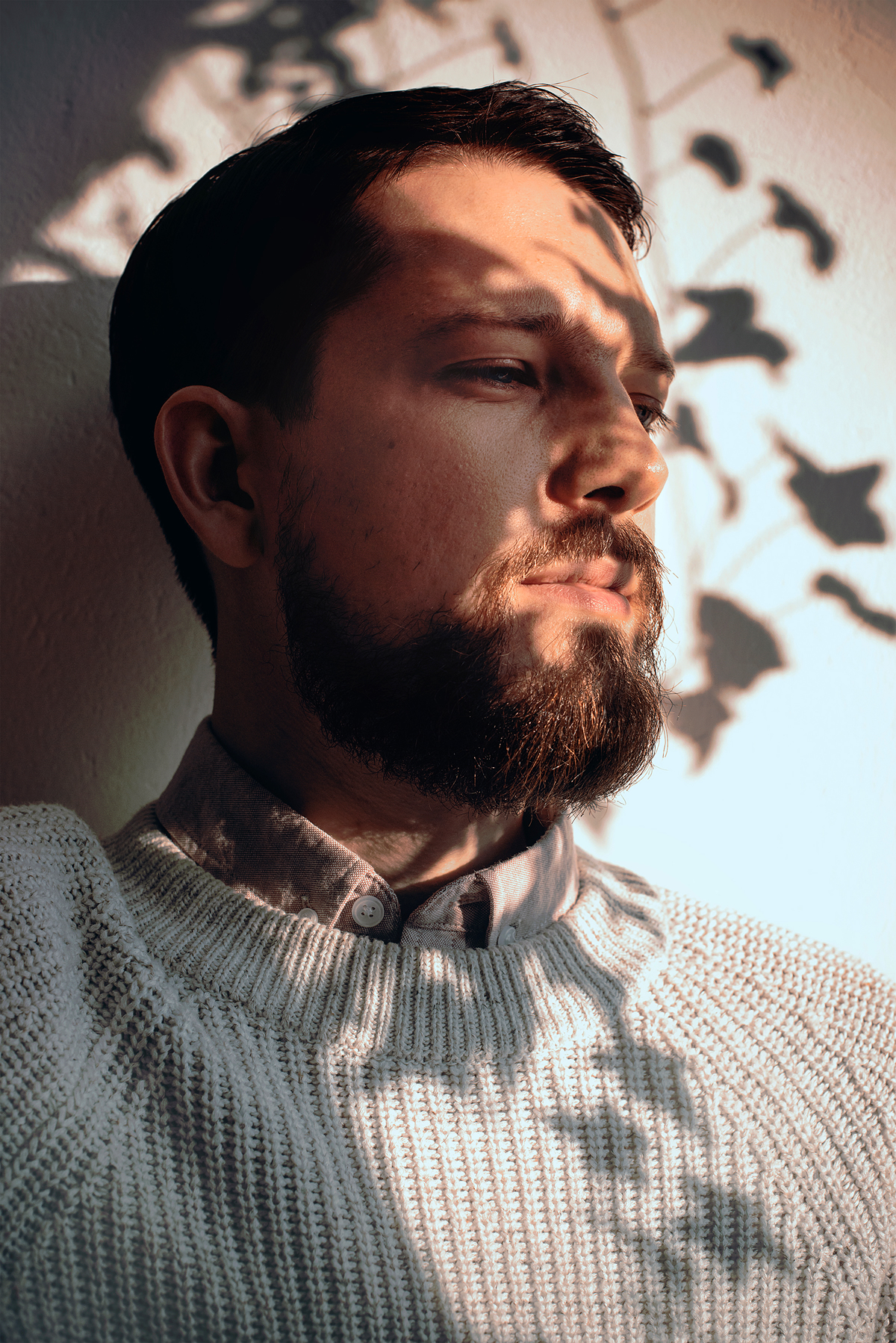
Zabarauskas’ first film, “Porno Melodrama,” which details a gay man’s decision to make a pornographic movie with his ex-girlfriend in order to make enough money for him and his boyfriend to leave Lithuania, premiered at Berlin Film Festival in 2011.
“There are many other films that have this kind of paranoia about gay villains, queer villains. I almost wanted to do something opposite,” Zabarauskas told the Blade while discussing the film. “It’s as though heterosexuality becomes this villain through the character of this villain, this ex-girlfriend. I wanted to play with that, allow myself that freedom to go very far. The title really hints more so, not to the erotic aspect of the film, because it’s not as explicit reality, but it’s more about the style of the film because it’s so out there.”
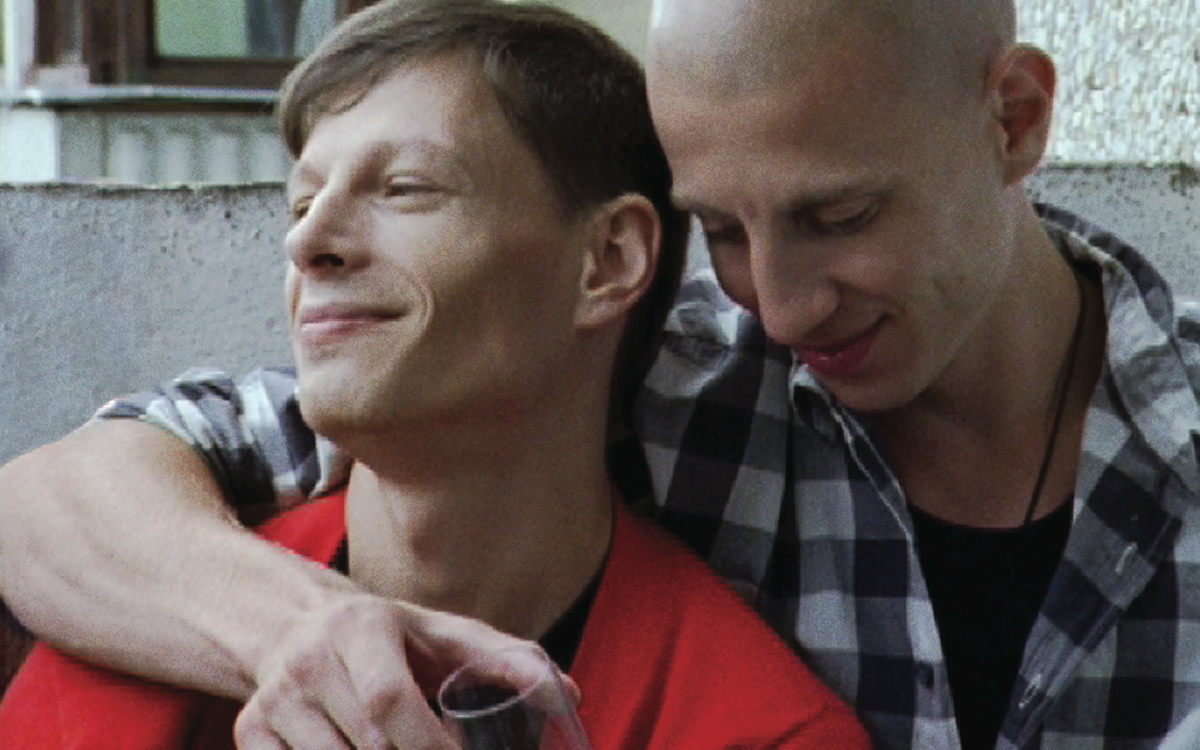
Zabarauskas came out as gay during “Porno Melodrama”‘s premiere at the Vilnius Film Festival.
“Very few people were out (in Lithuania) then in 2011,” he noted. “I got a lot of media attention … I talked about what it means to be gay on TV, print and all kinds of media.”
“It was a double-edged sword,” added Zabarauskas. “I was happy to contribute with my openness and I continue to do so today. On the other hand, I got so much pressure … the direct homophobia is understandable and easy to dissect. You know what it is, but then there was a lot of gray zone. I feel like I was trapped. I went under this huge scrutiny.”
The Berlin Film Festival then screened “Porno Melodrama.”
“I traveled the world, but then because I got so much media attention in Lithuania I was scrutinized by the critics and by film lovers and a lot of people (said) that I’m more of an activist,” said Zabarauskas. “I’m more of a public speaker than a filmmaker. The way I see it: Artists should be engaged or can be engaged, and it doesn’t contradict the art.”
The Lithuanian Film Center funded Zabarauskas’ third feature film, “The Lawyer,” which debuted in 2020.
“The Lawyer” highlights Marius, a gay corporate lawyer who forms what Zabarauskas describes as “an unexpected, human relationship” with Ali, Syrian refugee who is unable to leave Belgrade, Serbia, after his estranged father dies. Zabarauskas noted to the Blade that “The Lawyer” is the first Lithuanian film that portrays a male same-sex relationships and is one of the few made in Eastern Europe that shows LGBTQ and intersex refugees.
“I’m always interested in delving into very complicated political situations, but rather than to educate or send a direct message, I’m looking to find nuance and I’m looking to find interesting human drama,” he said. “I also don’t shy away from the kind of dialogue that they [Marius and Ali] have, in which they criticize [Syrian President Bashar] al-Assad. It’s so important not to forget that that was still ongoing and actually its fueled by Russia and by Putin.”
Lithuanian television showed “The Lawyer” for the first time on Nov. 11.
Lithuanian Shorts, in 2021 screened “Porno Melodrama,” which coincided with the film’s revival. Zabarauskas’ films have also been screened at the Tel Aviv International LGBT Film Festival and at New York City Pride’s human rights conference.
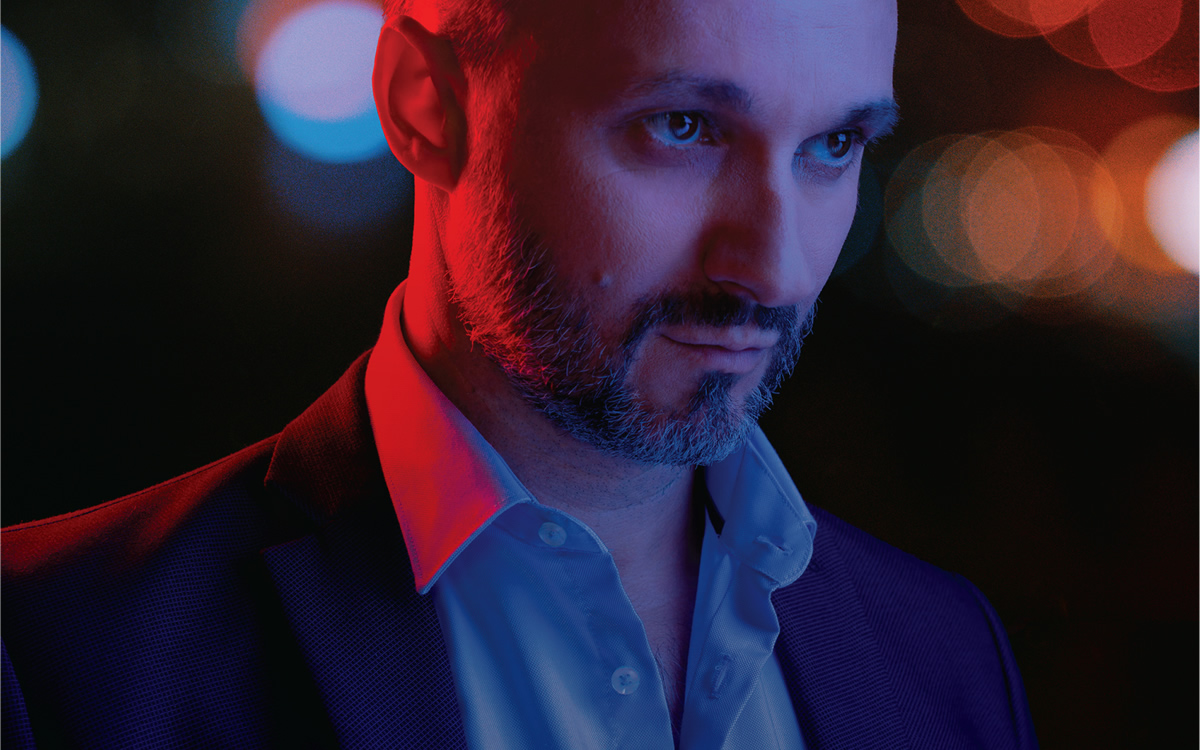
Zabarauskas spoke with the Blade nearly six months after Russia began its war against Ukraine.
Lithuania borders the Russian enclave of Kaliningrad and Belarus, whose president, Alexander Lukashenko, is a close ally of Russian President Vladimir Putin. Lithuania declared its independence from the Soviet Union in 1990, a year before it dissolved.
Zabarauskas noted then-Lithuanian President Dalia Grybauskaitė in 2014 labeled Russia a “terrorist state” after it annexed Crimea. Lithuanian MPs in May unanimously approved a resolution that described Russia’s war against Ukraine as an “act of genocide.”
“It’s the first time that I can be so proud of my country,” Zabarauskas told the Blade, referring to Lithuania’s posture towards Russia. “I’m actually very proud that Lithuania is right in terms of its foreign policy towards Russia and has been for a while.”
Zabarauskas acknowledged there is “fear” among Lithuanians about whether Russia will target their country, but he said, “that primal fear isn’t there anymore.” Zabarauskas also noted Lithuanians have welcomed Ukrainians into their homes.
“That’s been inspiring,” he said.
Gay U.S. ambassador ‘setting a personal example’
Lithuania bans discrimination based on sexual orientation and has lifted restrictions for male blood donors who have sex with men. Jessica Stern, the special U.S. envoy for LGBTQ and intersex rights, is among the more than 15,000 people who attended Baltic Pride 2022 in Vilnius in June.
Tomas Vytautas Raskevičius, the country’s second openly gay MP, is running to become Vilnius’ next mayor in 2023. Lithuanian Ambassador to the U.S. Audra Plepytė met with Zabarauskas when he was in D.C.
“Us artists, we have this opportunity to build bridges, to make pressure,” said Zabarauskas. “We sometimes have more freedom than politicians in what we can say and what we can do. I always try to use that in meeting diplomats and politicians and reminding them that the Lithuania LGBT+ is a part of Lithuanian society and we should celebrate our rights and our lives and that’s important.”
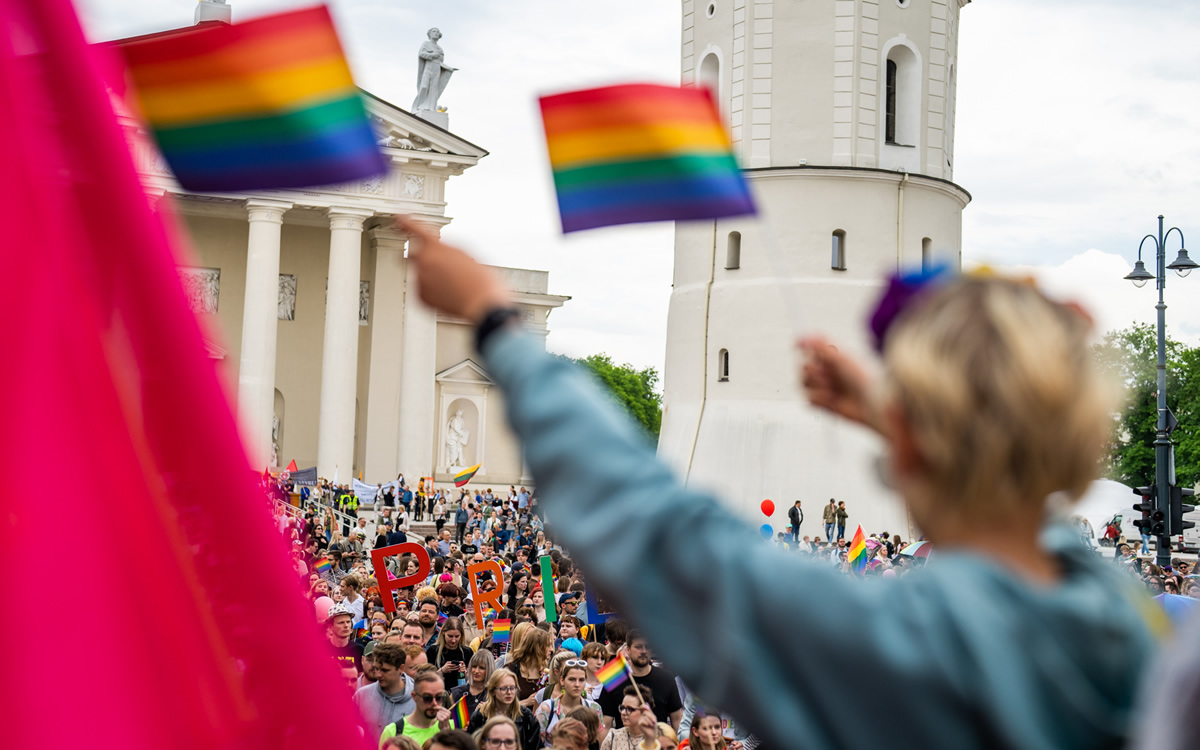
The Harvey Milk Foundation in 2021 honored Zabarauskas for his work. Zabarauskas noted this recognition to the Blade and applauded openly gay U.S. Ambassador to Lithuania Bob Gilchrist’s “personal leadership” on LGBTQ and intersex rights.
“I appreciate his leadership and I appreciate that he’s setting a personal example,” said Zabarauskas. “He’s making some impactful speeches at different events.”
Lithuania is one of only six European Union member states that do not legally recognize same-sex couples.
Ukrainian President Volodymyr Zelenskky in August announced his support for a civil partnership law for same-sex couples. Zabarauskas told the Blade he hopes Lithuanian lawmakers will follow the Ukrainian president’s lead and back an identical measure that has been introduced in Parliament.
“It’s so huge and a lot of people are inspired by those words, including in Lithuania,” said Zabarauskas. “I think it will be impactful in terms of our chances to get the civil unions law passed because it’s going to be very difficult to twist those words.”
Zabarauskas also said he and his fiancé want to get married in Lithuania.
“We got engaged earlier this year and we don’t want to get married abroad because it wouldn’t change anything in Lithuania,” he said.


